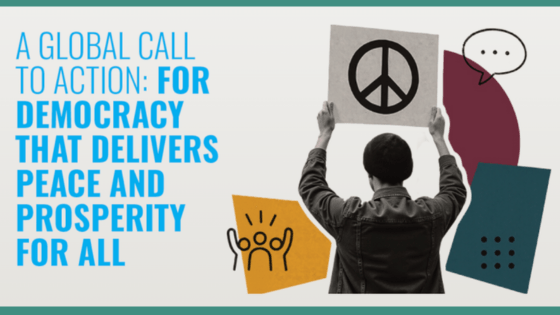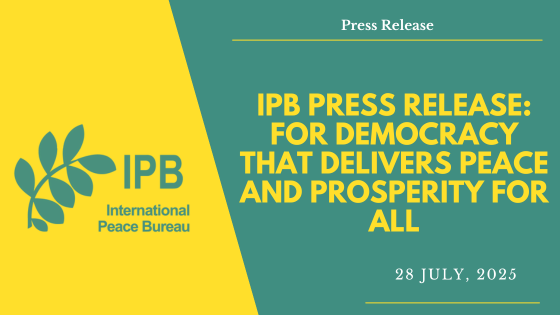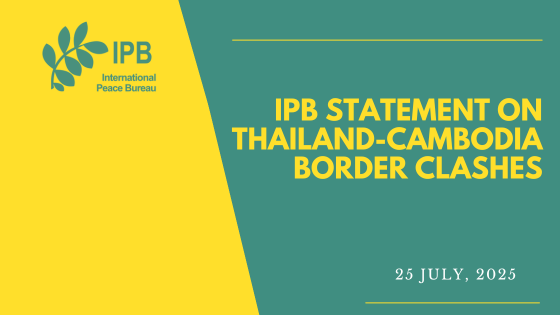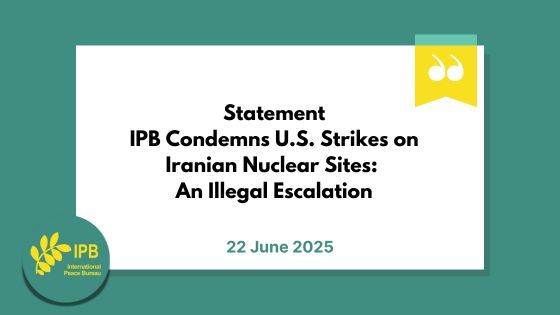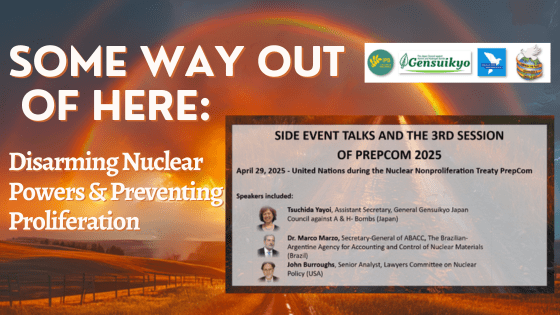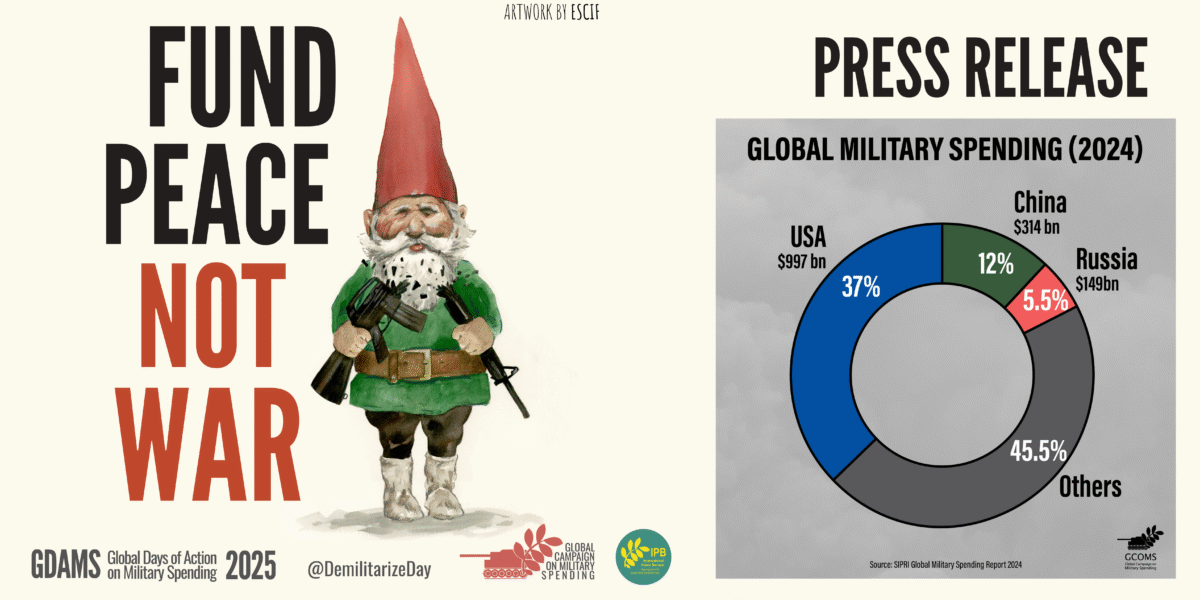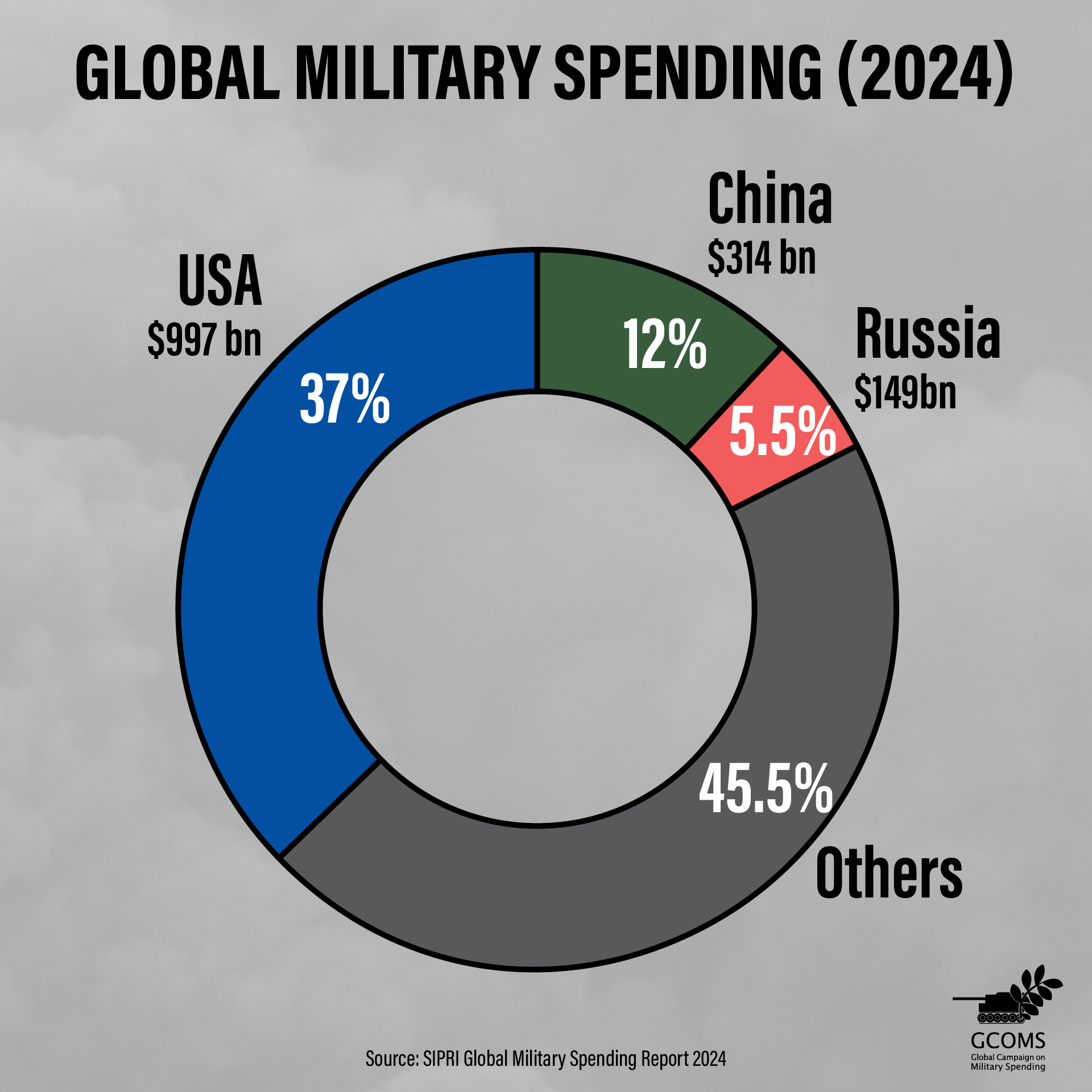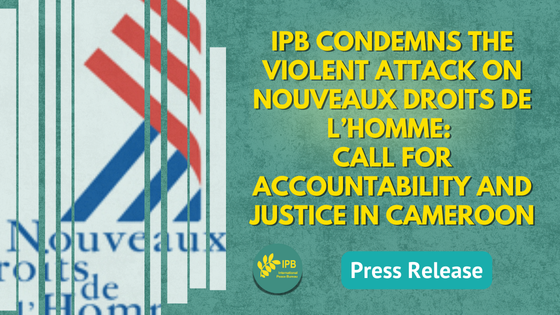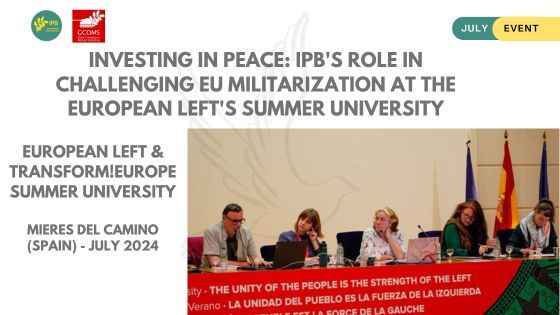- Global military spending reached $2.7 billions, representing a 9.4% increase in 2024 compared to the previous year, according to SIPRI estimates—marking the largest rise in recent history, with a nearly 20% increase in just three years.
- Over 100 peace organizations of 30 different countries call on governments to reduce military spending and instead address through cooperation and diplomacy the global challenges of our time.
Military approaches are gaining ground in the Middle East, with a 15% increase in military spending; in Europe, with an overall rise of 17%, led by Western Europe, which has increased its military budget by 24%; and in East and Southeast Asia, with increases of 7.5% and 7.8% respectively. NATO countries continue to lead globally, with their 32 members accounting for 55% of total global military spending—amounting to $1.506 trillion.
US military spending grew 5.7% to $997 billion, accounting for 37% of the global total by 2024. Russia, which increased its military spending by 38% in just one year ($149 billion), and Israel, with a 65% rise, are clearly committing to a war economy that supports political projects based on the use of military force.
China has increased its military budget for the thirty-third consecutive year, once again ranking as the second-largest military spender with $314 billion in 2024.
These are some of the key conclusions that can be drawn from the new global military spending data released today by the Stockholm International Peace Research Institute (SIPRI). The Global Days of Action on Military Spending (GDAMS), together with Centre Delàs of Peace Studies, analyzes the new military spending data and call for a reduction in global military expenditures, as well as for real efforts toward a new security architecture based on common security, disarmament, and international cooperation.
“The commitment to militarization by the major powers, along with international political uncertainty, distances the chances for peace in some of the main armed conflicts and increases the likelihood of opting for military solutions in regions with latent tensions. Furthermore, the arbitrary target of 2% of global GDP for military budgets is now being replaced by 3.5% or even 5%. This is boosting the business prospects of arms companies, and we know three out of four of the leading military industries are based in NATO countries,” analyzes Jordi Calvo, coordinator of Centre Delàs and the Global Campaign on Military Spending (GCOMS).
Military spending drives a militaristic Europe and moves peace further away from the continent.
EU member aggregate military spending reached 370 billion in 2024, the second highest after the US, and reaching a level in 2024 higher than the recorded at the end of the Cold War, with a 17% increase, primarily driven by Central and Eastern European countries. However, four of the five European countries that rank among the top 15 highest spenders are still Western; Germany, in particular, increased its military spending by 28% in 2024, becoming the largest investor in Central and Western Europe for the first time since reunification.
This goes hand in hand with the widespread discourse of European militarism in which the European Union itself is not left behind. In addition to the EU’s direct subsidies for the research, development, production, and acquisition of armaments, which would amount to nearly €1.5 billion in 2024 and €5 billion under the European Peace Facility, the European Commission has facilitated the use of civil programs for military projects, from the environmental LIFE program to transportation and regional funds, while encouraging private financial actors, including those involved in sustainable finance and the European Investment Bank, to invest in arms companies.
“Between the exacerbation of the global arms race and the defense of a contested hegemony, the militarization of the EU also poses a threat to the peace and security of its citizens. The recent plan for an additional €800 billion in military spending over the next four years will, sooner or later, lead to a reduction in public spending on healthcare, pensions, education, or the fight against climate change and its consequences,” warns Laëtitia Sedou, European advocacy coordinator for ENAAT, the European campaign against the arms trade
As military spending and defense initiatives grow, resources that could otherwise address pressing social challenges—such as climate change, public health, and poverty—are diverted towards furthering military capabilities. This shift toward militarization risks exacerbating tensions both within Europe and beyond, fueling instability and undermining efforts toward peaceful conflict resolution and cooperative international relations.
The 2025 GDAMS Appeal calls for an end to this arms race through drastic reductions of military spending.
Our campaign launched an Appeal at the beginning of this GDAMS period which has so far garnered more than 100 endorsements from organizations from 30 different countries all across the world (see the list here). Together, we call on governments to reduce military spending and instead address through cooperation and diplomacy the global challenges of our time, which require all available resources. The Appeal also calls for efforts aimed at global disarmament, stopping the arms trade and ceasing arms shipments to countries in conflict, demanding governments that they use all existing means to push for a real ceasefire and an end to the genocide in Gaza.
Join us on April 28 for our biggest day of action!
For the occasion we’ve prepared this toolkit with infographics, a press release, materials, and post suggestions in this shared folder.

